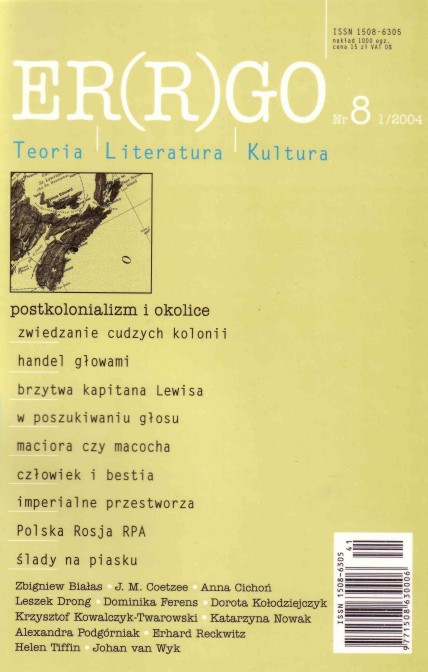Trawersem przez glob: studia postkolonialne i teoria globalizacji
Traversing the globe: postcolonial studies and theory of globalization
Author(s): Dorota KołodziejczykSubject(s): Literary Texts
Published by: Wydawnictwo Uniwersytetu Śląskiego
Summary/Abstract: The article aims to analyze the significance of spatial categories in postcolonialism. Dorota Kołodziejczyk puts forth a thesis that the characteristic spatial anxiety of postcolonial studies (visible e.g. in the inspirations from Foucault and Guattari and Deleuze) locates this discipline firmly in new theories of cultural globalization. She argues that postcolonial studies aims to replace the dominant logic of temporality founding the concept of modernity with the concept of subjectivity as heterotopia – a place where a range of different, often incompatible and alien spaces come together. Postcolonialism, since its inception sensitive to the problem of cultural and national borders, and the borders of belonging, rests on the premise common to its varied trends, namely that each form of identity is local, interactive and dynamic. Kołodziejczyk examines the postcolonial spatial categories arguing that this is in the explorations of the local and the global flows and the tension between them that postcolonialism has a chance to contribute to the theorization of globalization more complex and productive than that stemming from former development studies. It has also a chance to break away from the now exhausted paradigms of (post)colonial/ metropolitan manichean dichotomies. The conclusion is that this new spatial imagination unique to postcolonial theory and literature develops a vision of a new cosmopolitanism, which Homi Bhabha expresses as ‘our sense of mutuality in the conditions of mutability’.
Journal: ER(R)GO. Teoria-Literatura-Kultura
- Issue Year: 2004
- Issue No: 8
- Page Range: 21-39
- Page Count: 19

